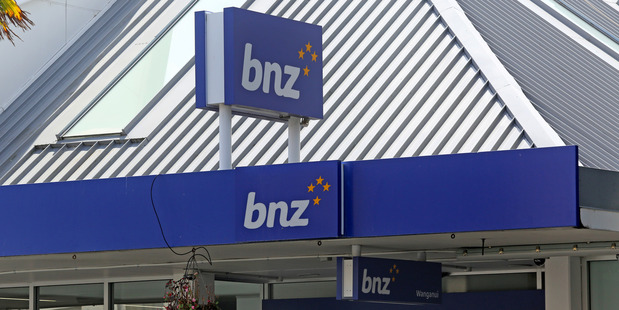"Safer, Warmer And Healthier Homes" – Changes To Regulations Affecting Landlords Posted: 12 Oct 2015 01:26 PM PDT by Gemma Dale, www.unconditional.co.nz Back in July, the Government announced changes to the law affecting landlords and tenants. Under new regulations, most landlords will be required to ensure that properties under their management meet certain standards, including effective insulation and the provision of smoke alarms. Theoretically, this legislation is good for both landlords and tenants – on the one hand, it ensures that tenants need not feel forced by market circumstances to live in poorly maintained, unsafe homes. On the other, it gives landlords the incentive to improve their properties, and makes said properties far more attractive rental prospects. However, these new regulations come at an interesting time for the letting market, and not everyone believes that the new regulations will have the impact that they should. In order to fully appreciate the potential consequences of these new laws, it is essential that they be viewed within their current context – particularly with reference to the now thriving rental black market. The Legalities Of Renting Those who rent legitimately, and declare their property interests to the government are naturally subject to rules and regulations – more so under the new laws. They are likely to have a degree of insurance protecting themselves, their business, their property, and their tenants. Furthermore, tenants who rent legally have recourse to legitimate avenues of dispute should they run into problems. Under the new laws, tenants will also be assured of a degree of warmth and safety within their homes as well – something any responsible landlord will usually provide as a matter of course. However, these safety measures and assurances must necessarily come at a price – which will usually be added on to the rent. In addition to this, in many areas of New Zealand (Auckland in particular), demand far exceeds supply when it comes to rental accommodation, meaning that landlords have a distinct advantage when it comes to pricing properties and choosing tenants. All too often, those in need of housing are finding that legitimately rented properties have a price tag which they consider extortionate, particularly when much-hated estate agent fees are thrown into the mix. Feeling exploited and priced out of the market, it is perhaps unsurprising that people are increasingly turning their backs on those who make it their legitimate business to rent out properties, and entering a growing 'black market' of sub-letting and surreptitious private tenancy. The Rental Black Market This 'black market' is not just flourishing in New Zealand – it's doing a roaring trade all over the world. The internet facilitates the illegitimate business of those who sub-let spare rooms, and rent out properties on a private basis without registering with the appropriate governmental authorities. With 'couchsurfing' websites like AirBNB in the vanguard, more and more people are choosing to shun estate agents and legally registered landlords in order to take their chances with rooms and properties advertised on the internet. In part, this movement is facilitated by the popular perception of estate agents and professional landlords as money-grabbing and exploitative – an image not aided by the media. Many people feel that they would far rather take their chances with a private and illegitimate landlord with whom they can deal on a face-to-face and equable basis than a professional agency or landlord whom they perceive to be steeped in greed and liable to exploit them at every opportunity. This is an image which the real estate industry really must work upon if the rental black market is to be combated in any serious way. Ethical Reform Of course, the best way in which to change an image is to act in the way you would like to be perceived. The new regulations, it is hoped, may help in some way to challenge the rental black market by giving tenants assurances of safety which they will certainly lack with unregistered landlords. However, it also indicates a degree of ethical thought and moral conduct with which the real estate industry is not usually associated. While some are still concerned that the new regulations are little more than a sop to tenant demands, others have noted that it may provide a welcome change in the general mode of landlord-tenant relations. In social housing, the required improvements must be put in place before next July. All other properties must meet the new governmental regulations by July 2019. The overall impact that this will have upon the rental market – both legitimate and illegitimate – but it is to be hoped that (assuming that landlords fulfil their obligations correctly) the situation as a whole will improve for everyone. "Gemma (Dale) is a financier turned freelance writer. She is passionate about helping businesses succeed with clever and engaging copy that enlightens and informs the reader. In her limited spare time she also enjoys roller blading, quite often with her energetic spaniel in tow." |
Tuesday, 13 October 2015
“Safer, Warmer And Healthier Homes” – Changes To Regulations Affecting Landlords
Subscribe to:
Post Comments (Atom)
BNZ boss warns of higher home loan rates
The Bank of New Zealand has posted its half-year profit. Photo/Bevan Conley Increased pressure on bank margins will mean higher home ...

-
http://www.interest.co.nz/property/75732/auckland-housing-consents-have-risen-strongly-three-months-row-could-end-housing There was a big ju...
-
http://www.goodreturns.co.nz/article/976502093/rates-may-not-rise-as-quickly-as-expected-economists.html Interest rates may not rise as sh...
-
Source: Unconditional.co.nz Manawatu-Wanganui hits the property sweet spot , Posted: 31 Oct 2016 09:05 AM PDT While demand in the...


No comments:
Post a Comment